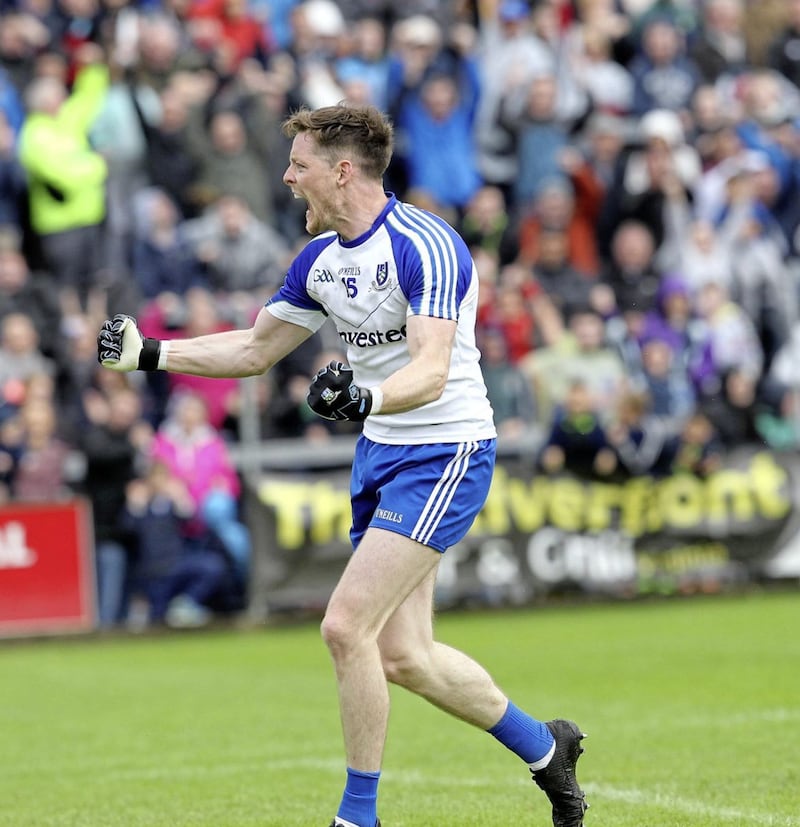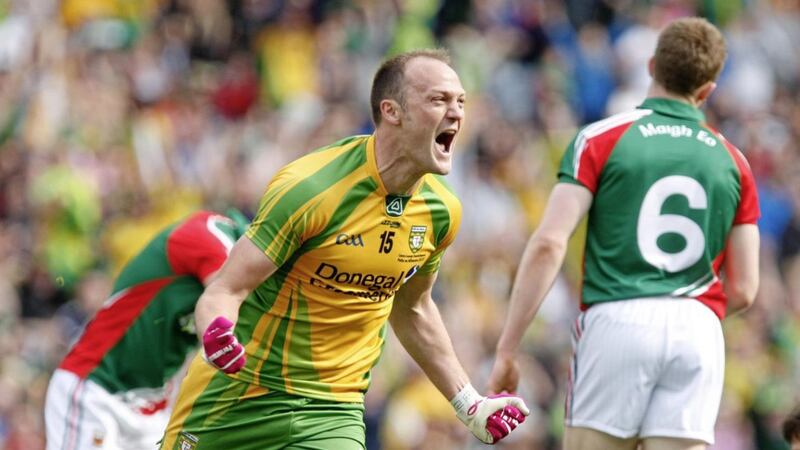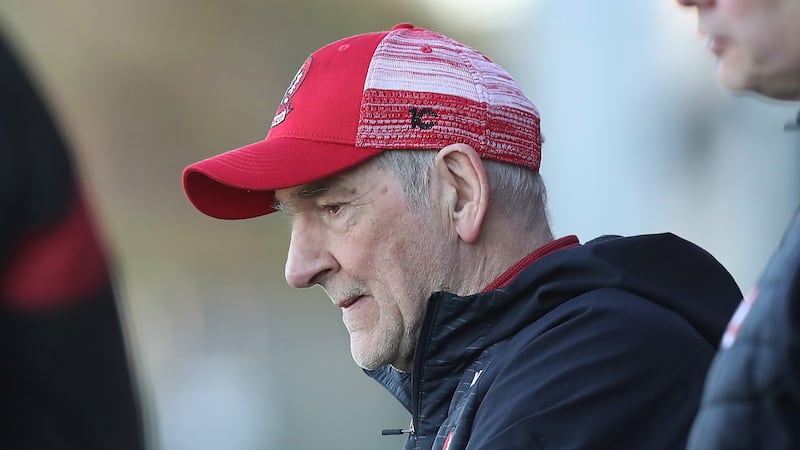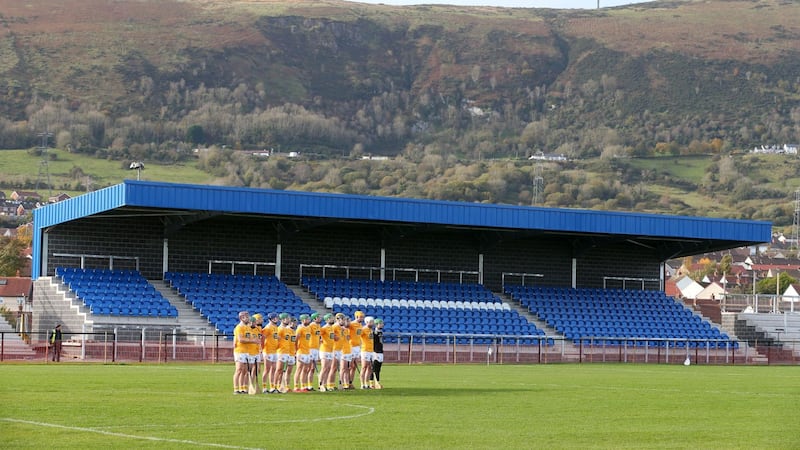JIM McGuinness was a tactical genius. He put pride back in the Donegal jersey and produced a system that would revolutionise Gaelic football.
The system he devised was wonderfully unique. The training, in its methods and its regularity, was a step into a new era. A squad full of supremely talented footballers was moulded so that it would reach its potential.
He managed his native county to their second All-Ireland title, earned himself a job with Celtic FC and is renowned as the sharpest tactical mind in the game, as per his always-interesting weekly newspaper column.
Karl Lacey was the Footballer of the Year in 2012. Michael Murphy was becoming the behemoth that he is. The McGees were impassable. Paul Durcan’s kickouts were untouchable, better even than Stephen Cluxton’s.
But for all the systems and all the belief and all the motivation and all the work that Donegal squad did, McGuinness still owes a hell of a lot of his success to his brother-in-law.
Colm McFadden, whose sister Yvonne is married to Jim, was the best inside forward in Ireland for two full seasons.
When they won a first Ulster title in 19 years in 2011, and came within a whisker of beating Dublin in that All-Ireland semi-final, he was untouchable. He was the best forward in Ireland for that spell.
He kicked 4-32 that year; an average of just over seven points a game. The following year, in bringing Sam Maguire back, he hit 4-27.
In that first year, McGuinness and McFadden met strength and conditioning trainer Adam Speer four mornings a week for strength and speed session.
He developed a massive set of shoulders that led to Neil McGee nicknaming him ‘The Bull’.
But of far more importance was his shooting practice. As McGuinness outlined in his book Until Victory Always, the Naomh Michéal man would hit the pitch in Dunfanaghy regularly to spend hours shooting.
He brought his father with him and would go through a meticulous routine of free-taking, beginning on the 13-metre line. Each time his father would blow the whistle as if it were a real game.
One after the other, he would kick frees right across the line and then move further out. His routine became second nature and his awareness of where the posts were could be seen in his finishing.
He trained smarter rather than harder.
“It’s not that we’re putting in more time, but you’re channelling it better, using the time better. Rather than going down and kicking 100 shots and concentrating for 20 per cent of them, I’ll go down now, kick 20 shots and put full concentration on each one,” he told the Donegal News in an interview in 2013.
His left foot was responsible for some of the most astonishing scores over the summers of 2011 and 2012.
To kick 8-59 in two years is a remarkable feat and yet one that has been somewhat overlooked as that team’s feats start to turn to history.
Football has changed a lot thanks to Jim McGuinness and Donegal, but one thing that hasn’t changed is the need for deadly, reliable inside forwards.
It was harshly evident in Kingspan Breffni on Sunday afternoon. Monaghan had Conor McManus and Cavan lacked a natural finisher of that level.

McManus didn’t even have his best day in a Monaghan shirt and his shooting was strangely off with the wind at his back in the second half. But that’s perhaps even greater testament that he finished with 1-4 to his name, and showed the ruthless edge in scoring the decisive goal.
Kerry and Dublin have changed tact somewhat over the past few years but what remains consistent is that they have some of the best finishers in the game.
Paul Geaney has developed into the ultimate poacher. He plays off a breadwinner, comes on the loop and kicks without a second glance.
He is a rarity in the modern game, someone who has the timing and finishing ability to find scores within 25 yards of the opposition goal.
And he kicked just two wides in the whole Championship last year. Paidí Ó Sé coached him at school and told him: “People say practice makes perfect. I don’t believe in that. Perfect practice makes perfect.”
Geaney, like McFadden, concentrates on the quality rather than the quantity of his shooting. He makes sure that when he is shooting, every shot that he takes is going over the bar.
If Kerry win an All-Ireland this year, it will be largely down to him.
Dean Rock won an Allstar last season for kicking frees, and with Bernard Brogan’s influence greatly lessened, Dublin only won an All-Ireland because of Rock.
His focus is on getting his heart rate down and his breathing steadied before he kicks a free.
Those things do not happen by accident. They’re as a result of years and years of repetition on the training field.
And yet if you went to a training session in most clubs and even counties right around Ireland, you could be guaranteed the go-to forward would be standing holding a tackle bag or worse still, actually tackling.
In an era of training smarter, forward play is only just catching up after years of neglect.
For all the systems and tactics and transition play, you still need someone that will absolutely guarantee you scores at the end of it.








